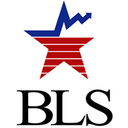That ride back up can come so abruptly and happen so incredibly fast, that it's tough to spot those bottoms in time - before they get away from you.
I agree...and thanks.
My problem was I did not realize the Fed was going to 'run the show' like they did.
I assumed they would not start 'turning Japanese' and have the central bank take over the economy.
And by the time I finally realized what was going on - I had missed a lot of the profits to be had.
My fault.
I had a closed mind.
I refused to consider that the Fed truly was
'all in'.
My bad.
But I learned.
Overall?
The thing about the top and the bottom is the top is fairly, easy to spot...imho.
As long as you have an open mind and see what caused the top in the first place - you can see where the power behind the bull market has ended.
The '07 top was all about housing.
And it was that old Wall Street story - when the shoe shine boy is buying stocks...you know it's time to get out.
Because everyone who can buy stocks - has bought them.
And bull markets only continue so long as new money enters them.
So, in late Summer, 2007, when I heard stories that mortgage firms were desperately looking for ANYONE to get into a house?
I knew the top must be near...so I dumped EVERYTHING.
Like this LOOOOONG, bull market since '09?
It was almost entirely driven by the Fed (and central banks all over the world).
So, it was probably going to keep going until the
one thing that would force the Fed out, rose it's ugly head...inflation.
Almost nothing else would stop them.
So, when I saw in the new year that inflation was not 'transitory'.
It was obvious that the Fed would
HAVE to stop QE and raise rates.
And that would kill this ridiculous, debt-fueled, stock-buyback, screw-fundamentals party.
At least for now.
(I realize you probably know all this. But this is for anyone who doesn't.)
The thing is though.
Most people still do not understand the Fed and the power it has.
Or that the Fed is running the show.
Too many people still believe that it is Washington that runs the economy.
Or Main Street.
Not this time.
That is probably why - even on this site -
SO many people are completely missing what is going on.
They think it is about Trump or Biden or Covid or Ukraine or oil.
No...it is the Federal Reserve.
And since this is the first bull market, almost completely run by the Fed, most people are naturally not seeing it.
Just like I refused to see it back in '09.
So long as the Fed has to fight inflation - the markets will almost certainly go down until they hit bottom.
Or until inflation turns around and the Fed can jump back in and prop up the markets again.
If you got this far...thanks for reading.
Later.








